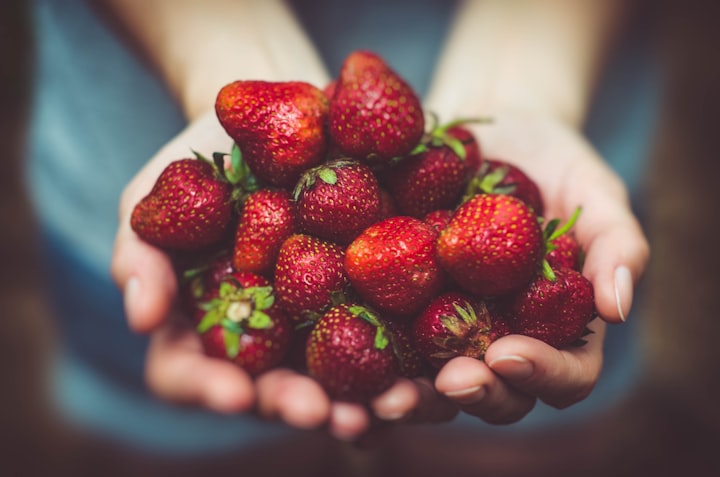Green Diet: The Benefits of Mindful Eating
How Eating Slowly Can Improve Your Health and Well-being

In recent years, there has been an increasing awareness of the impact that our diets have on the environment. A green diet is a way of eating that emphasizes plant-based foods and minimizes the consumption of animal products. This type of diet has been gaining popularity due to its potential health benefits and positive environmental impact. In this blog post, we will discuss what a green diet is, its benefits, and how to adopt it.
What is a Green Diet?
A green diet is a type of diet that emphasizes plant-based foods while limiting the consumption of animal products. This means that the bulk of your diet will come from fruits, vegetables, legumes, whole grains, and nuts. Animal products, such as meat, dairy, and eggs, are eaten in smaller quantities or avoided altogether.
There are different variations of a green diet, and some people may choose to follow a vegan or vegetarian diet, which excludes all animal products. Others may follow a flexitarian diet, which involves eating mostly plant-based foods but occasionally incorporating meat or other animal products.
Benefits of a Green Diet
There are several benefits of following a green diet. Here are some of the most significant ones:
- Better for the Environment
One of the main reasons people adopt a green diet is its positive impact on the environment. Animal agriculture is a significant contributor to greenhouse gas emissions, deforestation, and water pollution. By reducing or eliminating animal products from your diet, you can significantly reduce your carbon footprint and help protect the planet.
- Improved Health
A green diet can also have several health benefits. Plant-based foods are rich in vitamins, minerals, and fiber, which can help reduce the risk of chronic diseases such as heart disease, diabetes, and certain types of cancer. Additionally, plant-based diets have been shown to improve gut health and reduce inflammation.
- Weight Management
Following a green diet can also help with weight management. Plant-based foods are generally lower in calories and fat than animal products, making it easier to maintain a healthy weight. Additionally, the high fiber content of plant-based foods can help you feel full and satisfied, reducing the likelihood of overeating.
- Cost-Effective
A green diet can also be cost-effective. Plant-based foods are often less expensive than animal products, and you can save money by cooking at home instead of eating out.
How to Adopt a Green Diet
If you're interested in adopting a green diet, here are some tips to get you started:
- Start Slowly
If you're used to eating a lot of animal products, it can be challenging to switch to a plant-based diet overnight. Instead, start by making small changes to your diet. For example, try swapping out meat for plant-based protein sources like beans or tofu a few times a week. Gradually increase the amount of plant-based foods in your diet over time.
- Focus on Whole Foods
When adopting a green diet, it's important to focus on whole, unprocessed foods. This means choosing fruits, vegetables, legumes, and whole grains over highly processed foods like vegan meat substitutes or junk food.
- Experiment with New Foods
Eating a plant-based diet doesn't have to be boring. Experiment with new fruits, vegetables, and grains to keep things interesting. Try cooking with spices and herbs to add flavor to your meals.
- Meal Planning
Meal planning can be a useful tool when adopting a green diet. Planning your meals in advance can help ensure that you're getting all the nutrients you need and prevent you from resorting to less healthy options when you're short on time.
- Get Support
Another helpful tip when adopting a green diet is to seek support from others. Joining a local plant-based cooking group or finding an online community of like-minded individuals can provide you with valuable resources, recipe ideas, and tips to help you stick to your new dietary habits. Having a support system can also help you stay motivated and make the transition to a green diet easier.
Conclusion
A green diet is a type of diet that emphasizes plant-based foods while limiting or avoiding animal products. This type of diet has several benefits, including better environmental sustainability, improved health, weight management, and cost-effectiveness.
Adopting a green diet can be challenging, especially if you're used to eating a lot of animal products. However, by starting slowly, focusing on whole foods, experimenting with new foods, meal planning, and getting support, you can successfully transition to a green diet.
If you're interested in adopting a green diet, it's essential to do your research and make sure you're getting all the nutrients your body needs. Consult a registered dietitian or a healthcare professional to ensure you're meeting your nutritional needs.
In summary, a green diet is a great way to prioritize your health and the environment. With the right tools and support, anyone can adopt a green diet and reap its many benefits.
Here's a sample one-day green diet plan based on Indian cuisine:
Breakfast:
Masala oatmeal with vegetables (sautéed onions, carrots, peas, and tomatoes) and spices (turmeric, cumin, coriander, and chili powder)
Fresh fruit salad (papaya, banana, and pomegranate)
Mid-Morning Snack:
Roasted chana (chickpeas) with chaat masala
Lunch:
Whole wheat roti (Indian flatbread) with dal (lentils) and mixed vegetable sabzi (cooked vegetables with spices)
Cucumber and tomato salad with lemon juice and cilantro
Afternoon Snack:
Carrot and beetroot juice
Dinner:
Brown rice pulao with mixed vegetables (carrots, peas, beans, and corn)
Mixed dal (lentils) with spices
Cabbage salad with lemon juice and roasted peanuts
Bedtime Snack:
Almond milk with cardamom and honey
This green diet plan includes plenty of plant-based foods like whole grains, lentils, and vegetables, as well as fruits and nuts for snacks. It's also high in fiber and protein, making it a nutritious and satisfying way to eat. Remember to adjust portion sizes to meet your individual needs and consult a registered dietitian if you have any specific dietary concerns.
About the Creator
YathirajaSampathKumar K R
Hello everyone, my name is YathirajaSampathKumar K R and I am a business man, software architect, and NFT creator with 12 years of experience. In addition to my professional pursuits, I am also an author, writing motivational stories.






Comments
There are no comments for this story
Be the first to respond and start the conversation.